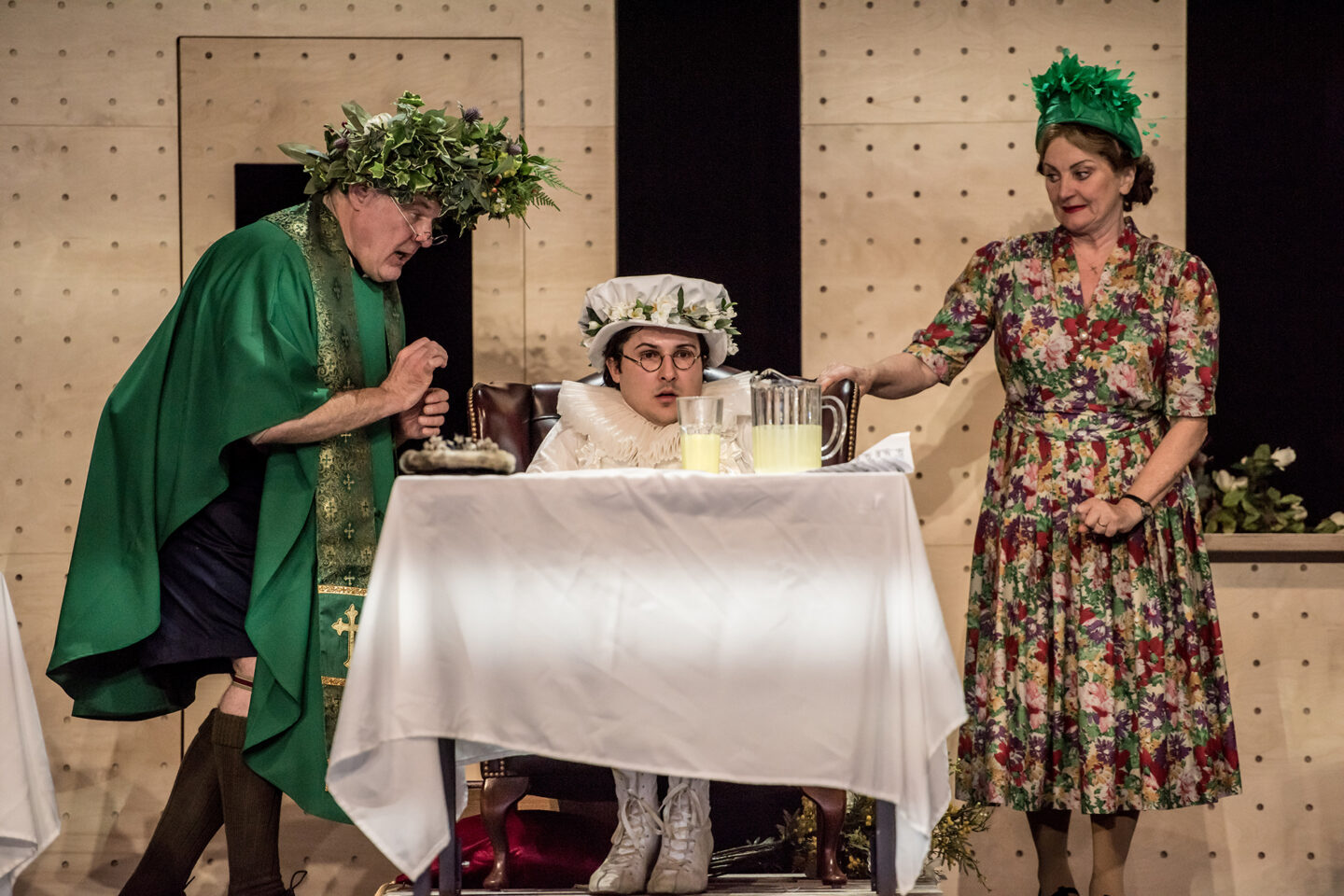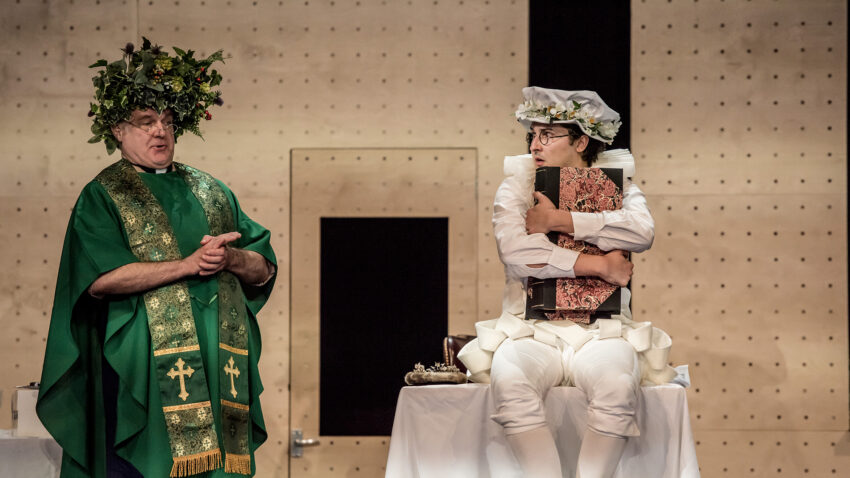Britten’s operas are a core part of the ENO’s history, having premiered Peter Grimes in 1945, and we’re always proud to bring Albert Herring to the stage.
Keep reading our guide for a full opera synopsis of Albert Herring, insights into the libretto and previews of the ENO production.
Albert Herring Production Images
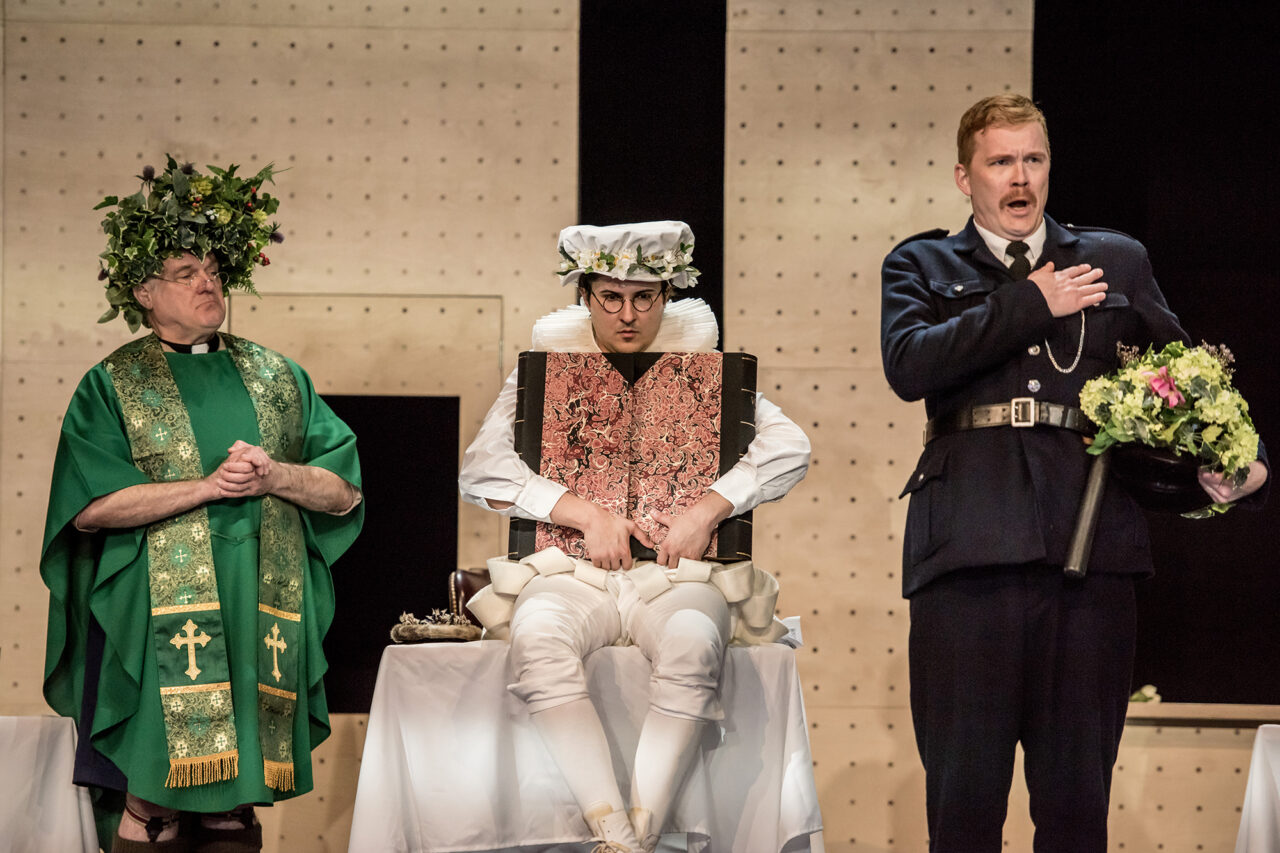
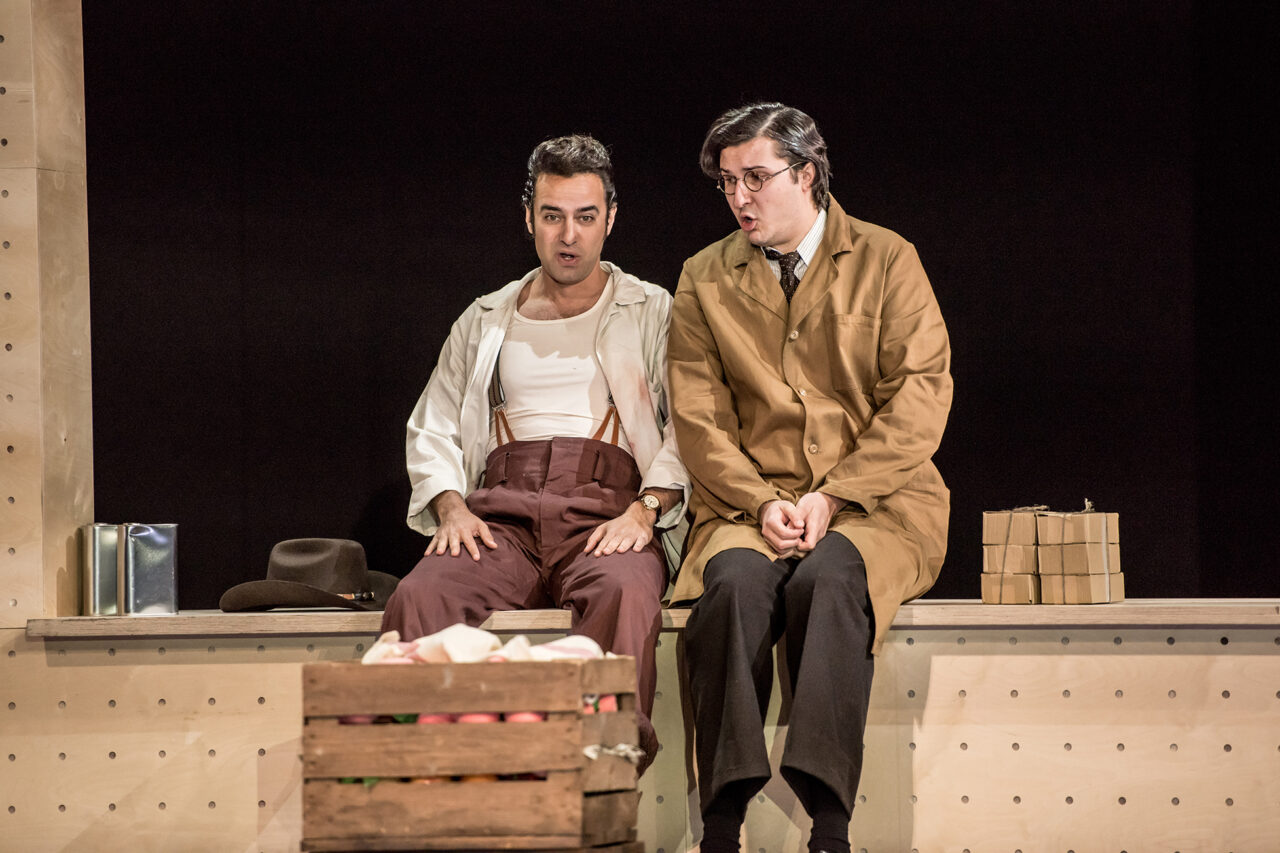
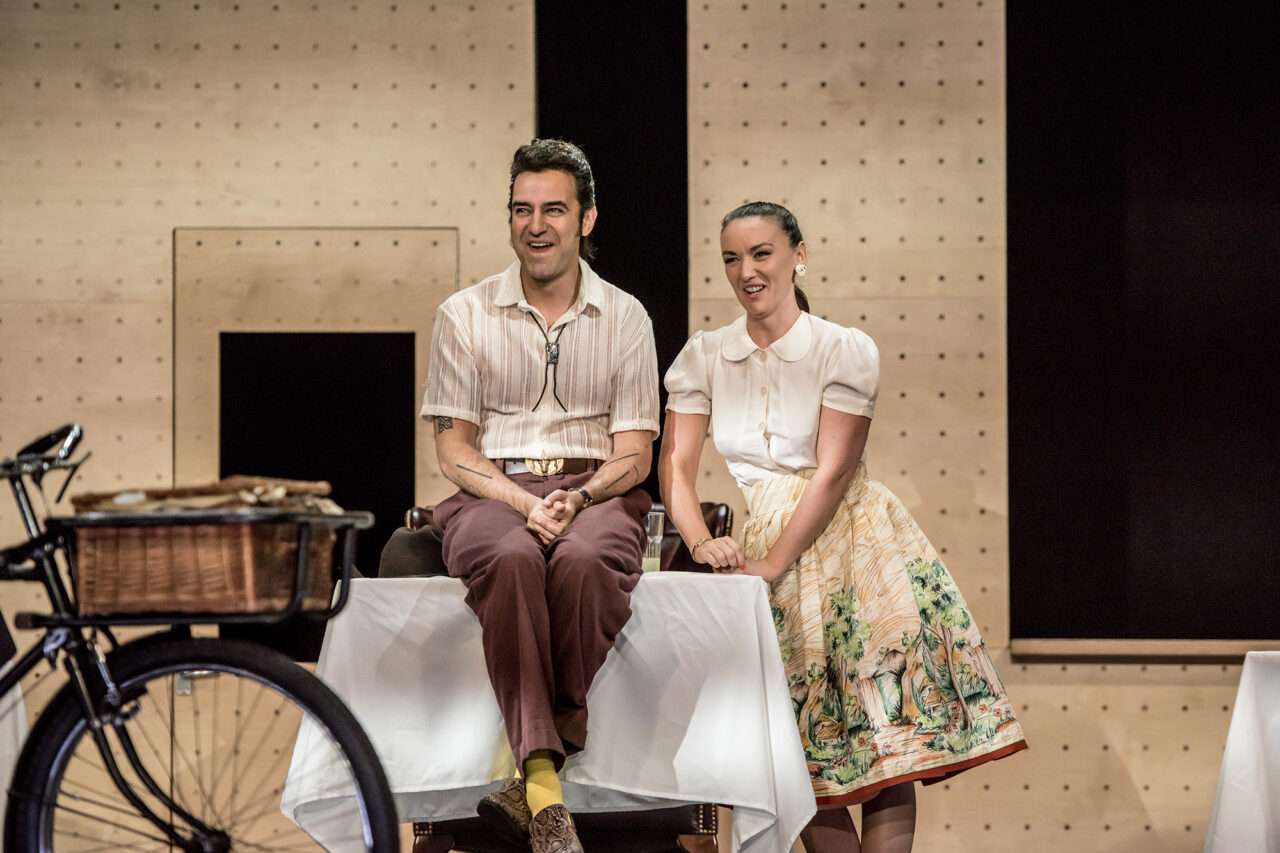
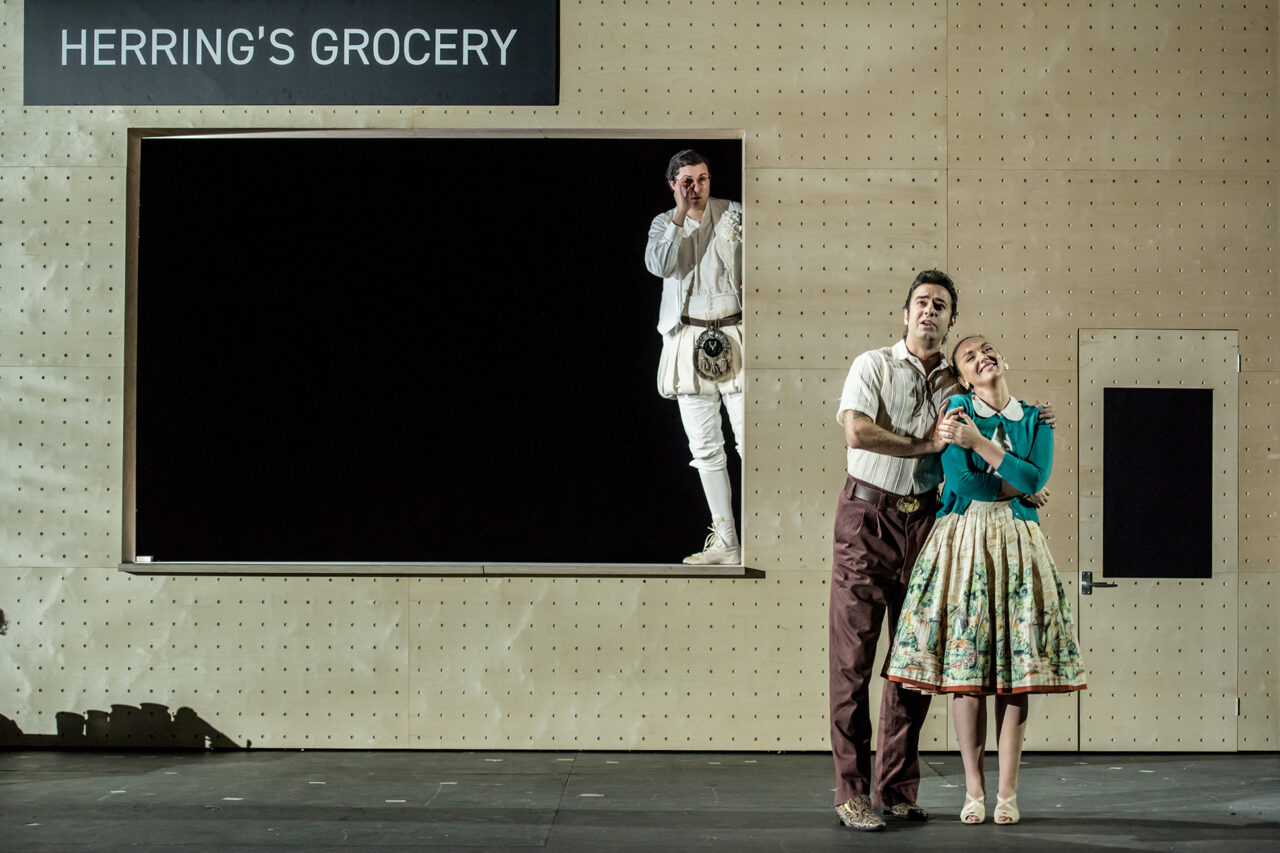
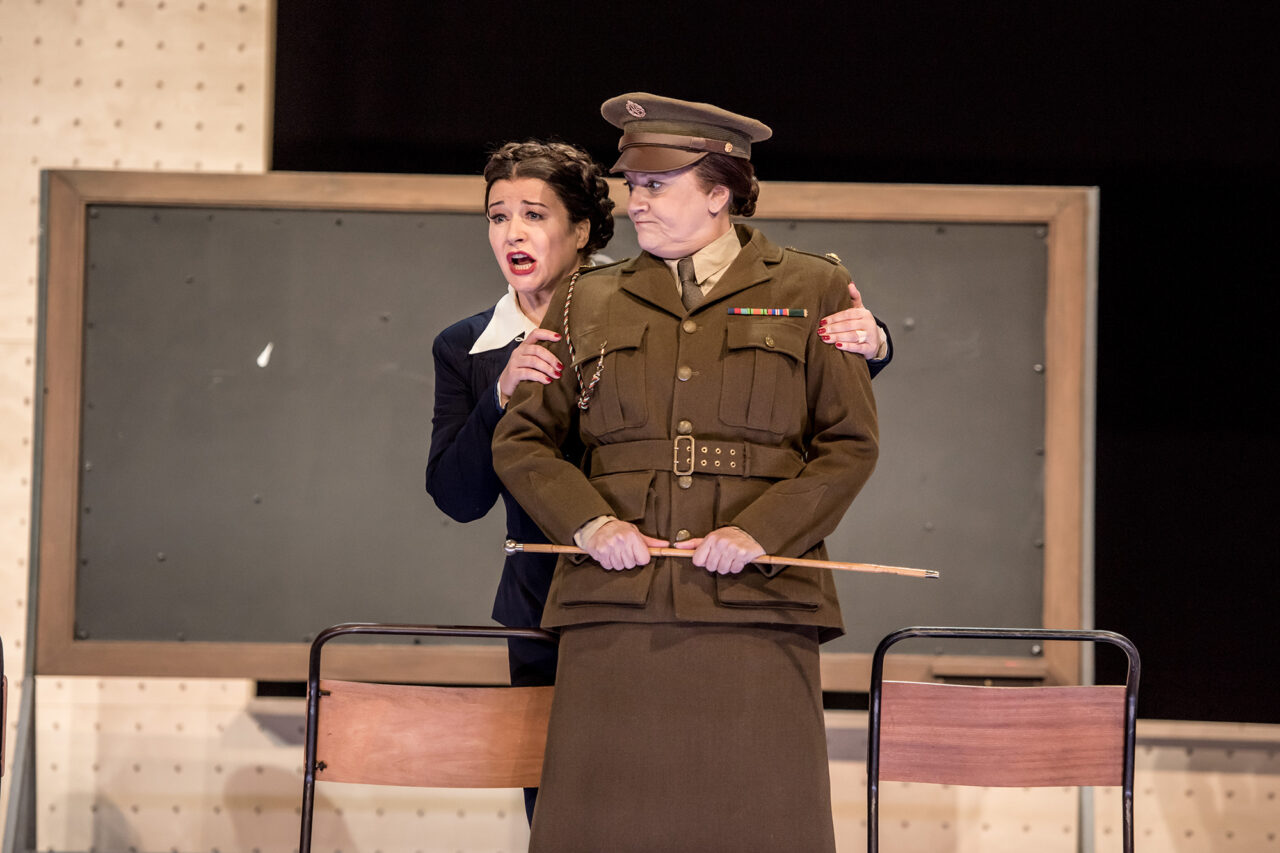
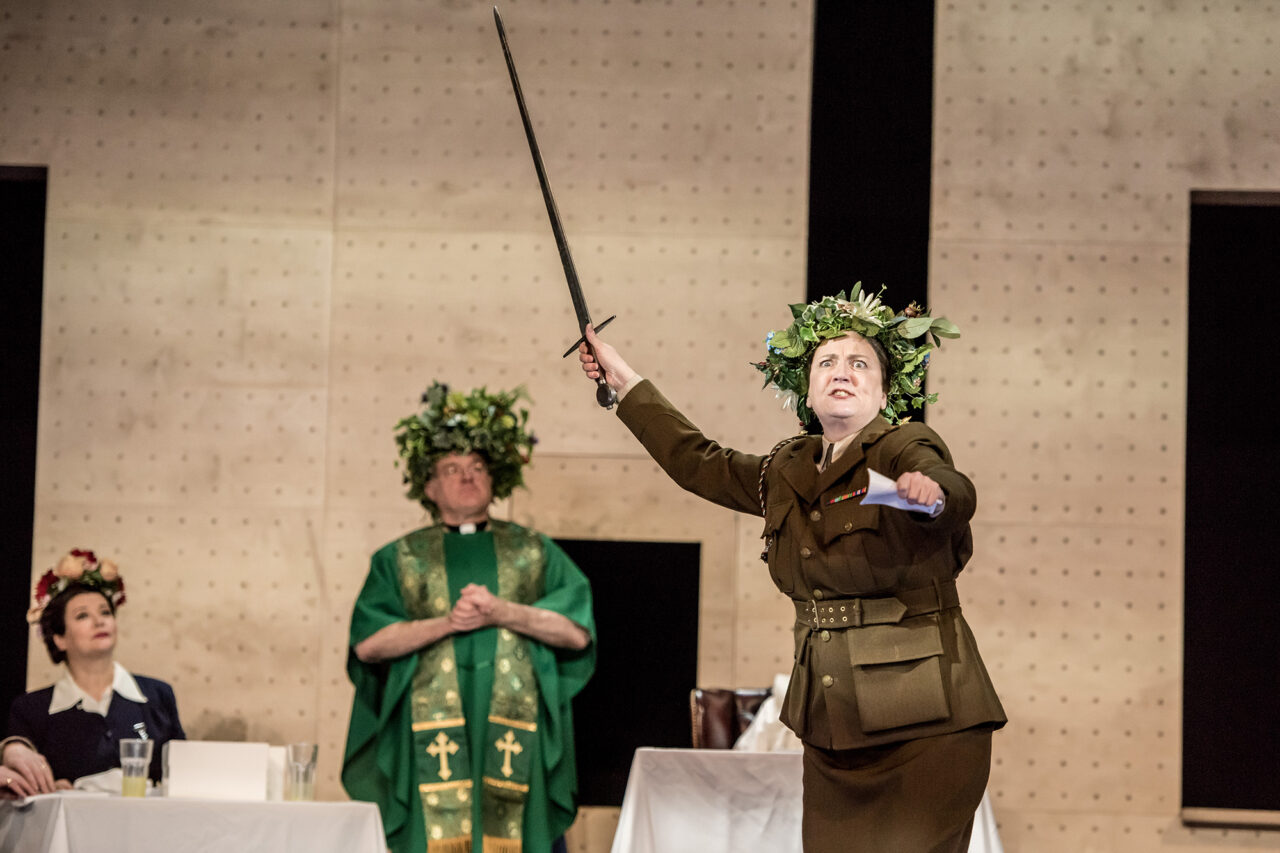
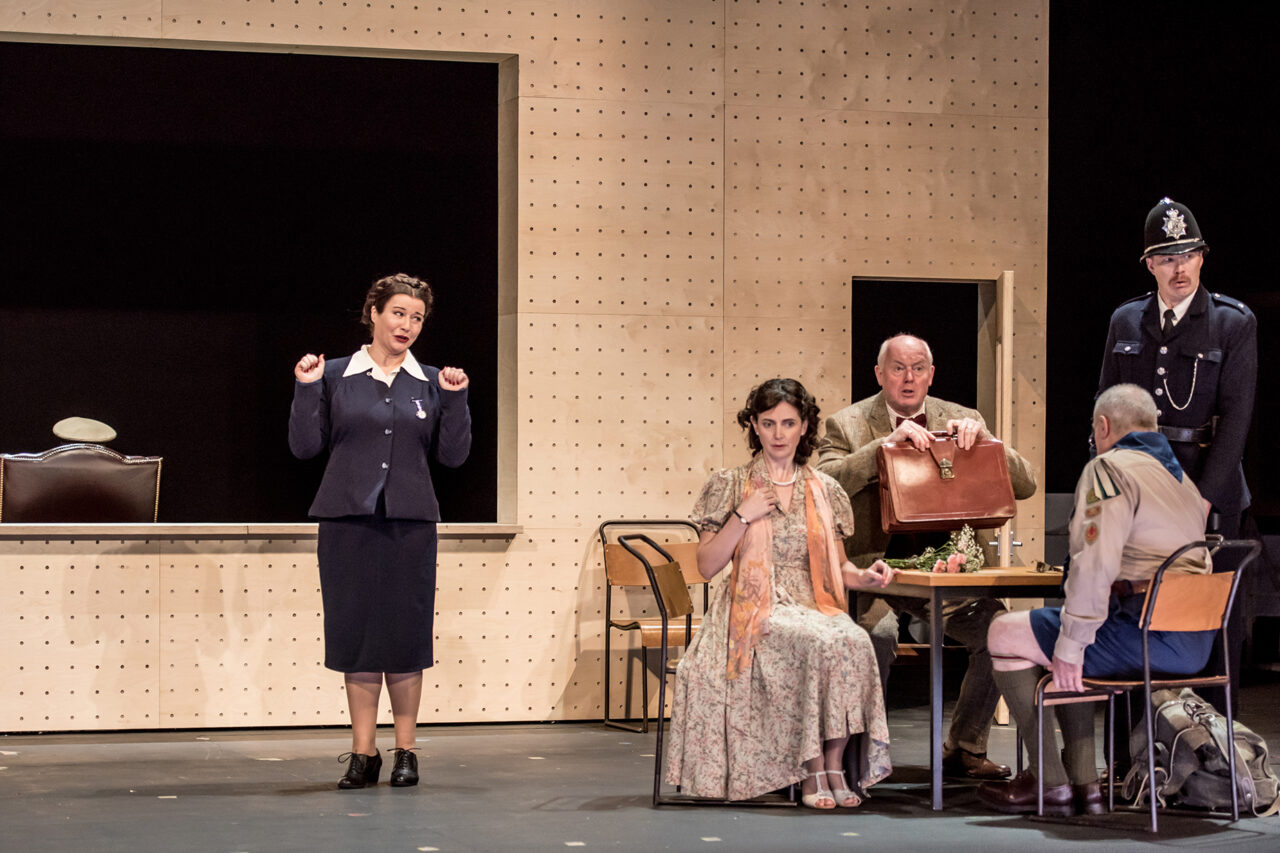
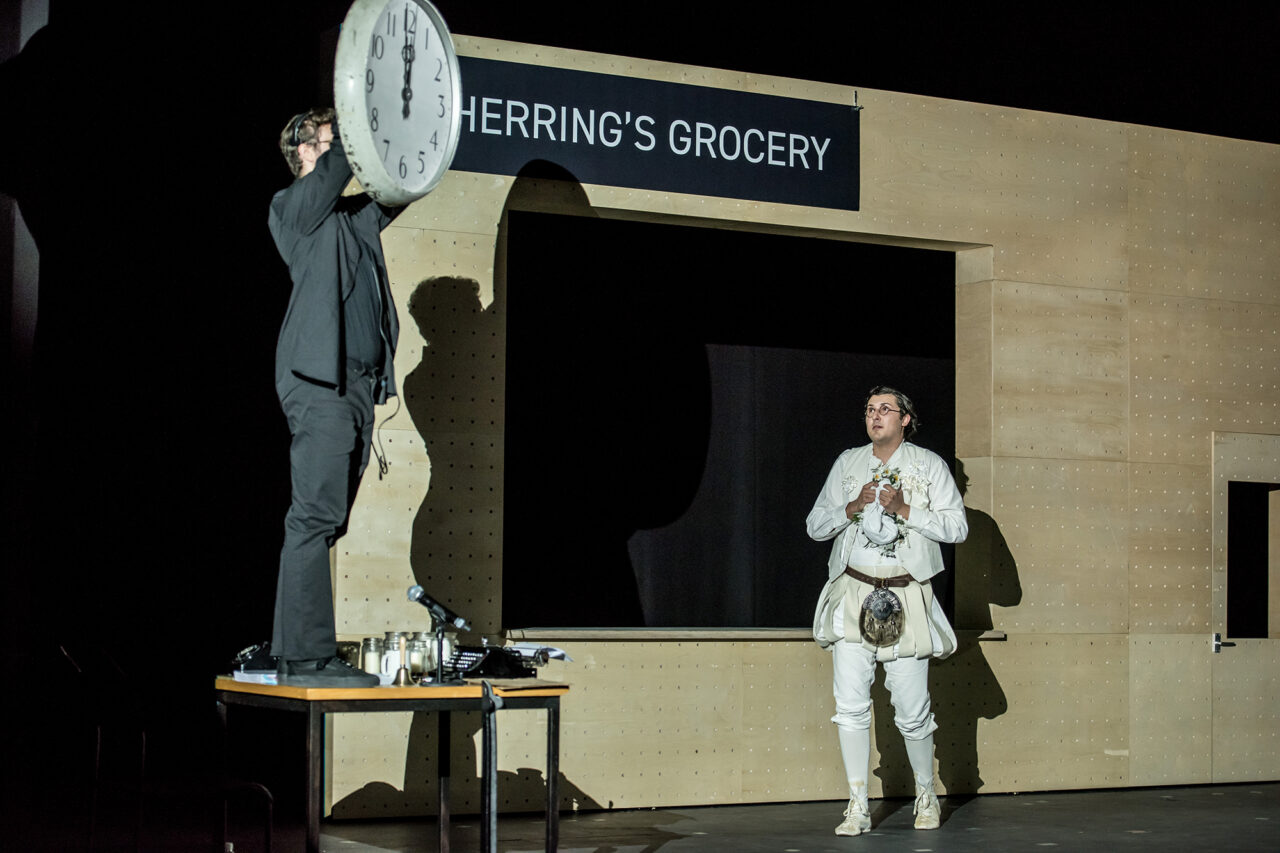
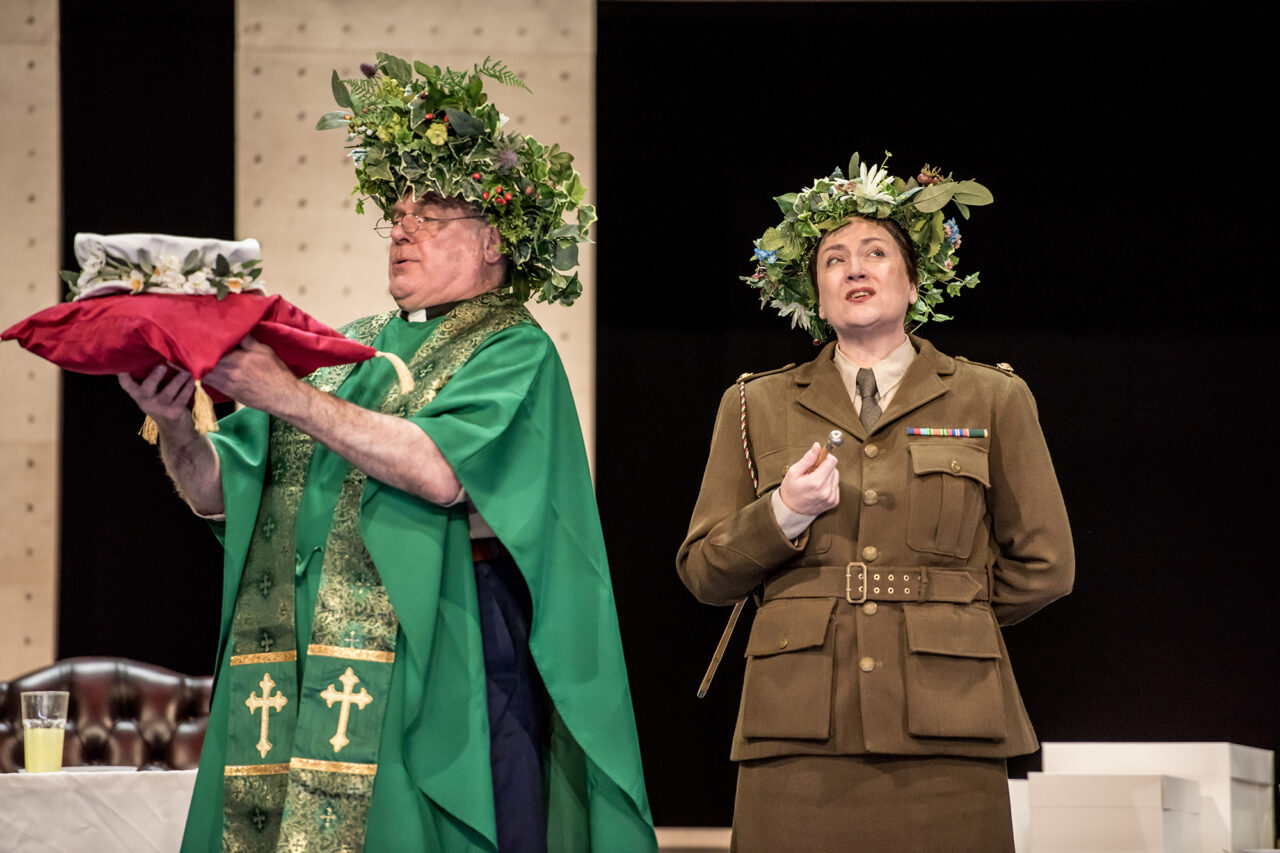
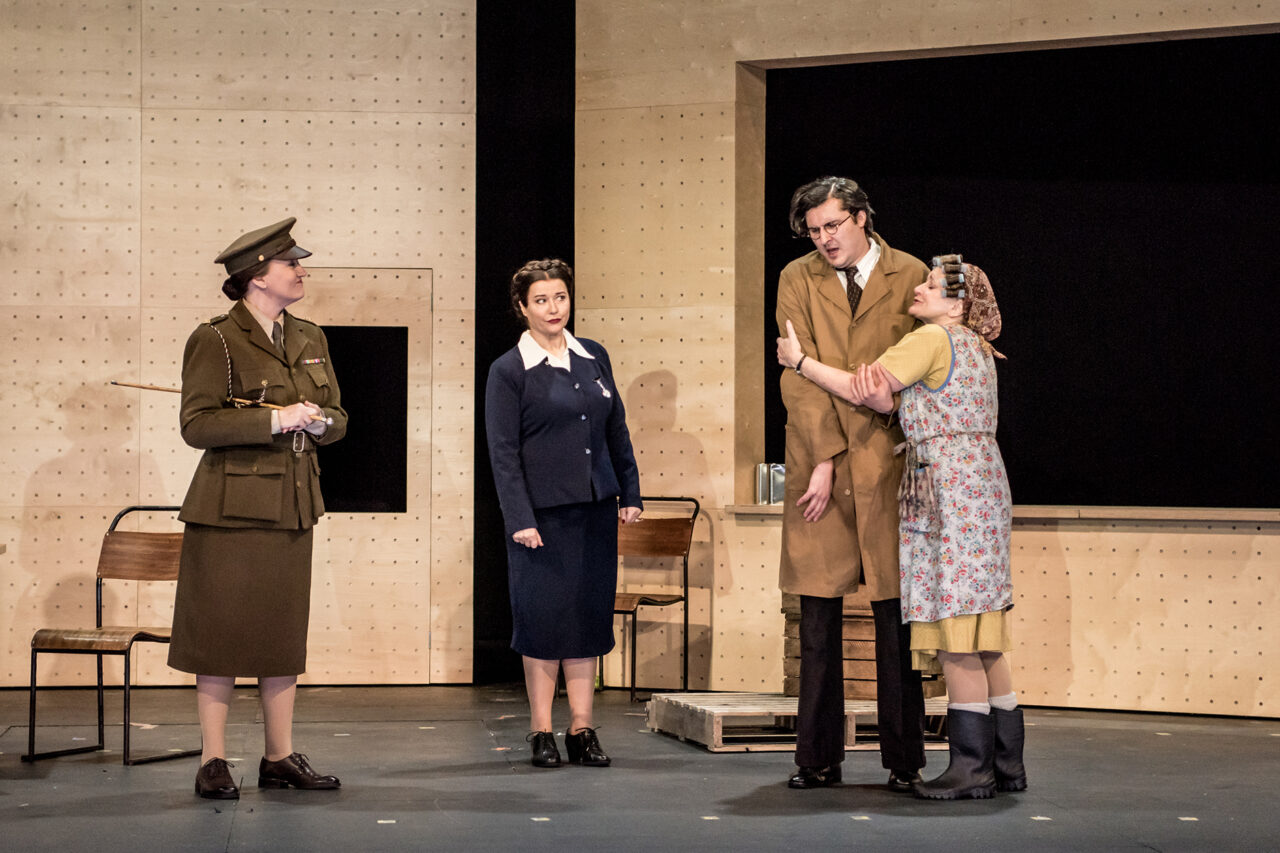
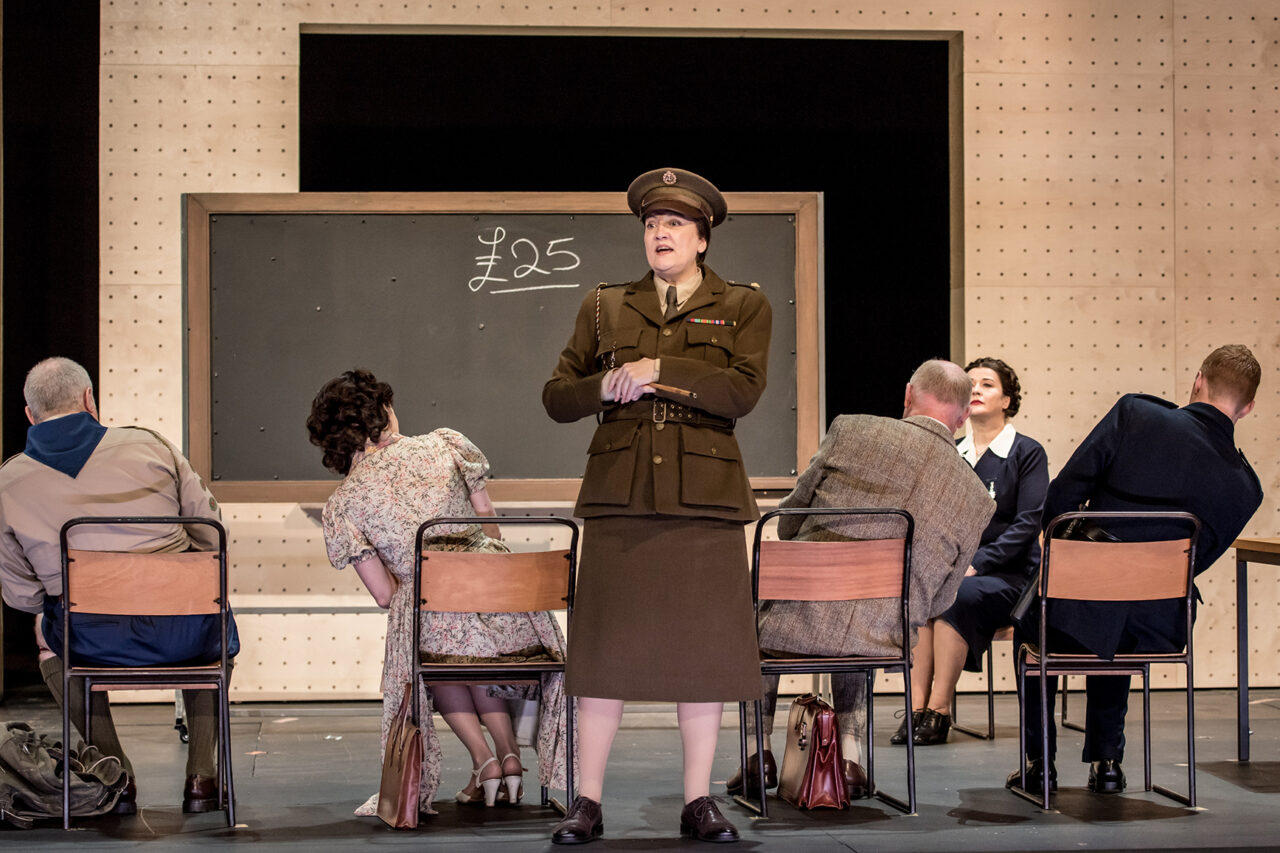
Albert Herring Opera Synopsis
Synopsis written for the premiere at Glyndebourne, 1947
© Eric Crozier
Act I
The scene is Loxford, a small market town midway between Ipswich and Aldeburgh, in East Suffolk. One of the more important persons of the district is Lady Billows, who combines an autocratic zeal for good works with a horror of immorality in all its forms – but especially among the young and unmarried. This has brought her to the notion of reviving the May Day Festival in Loxford. She appoints a small committee to guide her in selecting a worthy girl for May Queen, offers 25 guineas as the premium on virtue, and sets Florence, her housekeeper, ferreting around for gossip about all likely candidates.
Alas, when the committee has its final meeting in April, the evidence against its nominees is comprehensive and damning. To elect a local girl for her virtue would shirk the plain facts. None of them are fit.
The Superintendent of Police saves the situation: if there is no Queen available, why not have a May King? Why not Albert Herring? His reputation is spotless, and his shyness and fear of girls are notorious. The Vicar agrees: why should virtue be a prerogative of the female sex? Lady Billows grasps at the chance of snubbing the unforgivable Loxford girls, and the whole committee sets off to break the news to Albert and his mother.
The Herrings keep a greengrocer’s shop in Little Street, next door to the butchers. We see Albert first on a normal workday morning, with Sid from next door dropping in for a chat. They are joined by Sid’s newest girl, Nancy, and the flirtation between her and Sid makes Albert uncomfortable, and he’s glad to see the back of them. He becomes even more uneasy when Florence arrives, as forerunner to the whole committee, and he objects strongly to their plan of crowning him, but is overruled by Mum, who has a weather eye on the 25 guineas.
Act II
May Day itself. Nancy and Sid are making last-minute preparations for high tea, while everyone else is at the service in the Parish Church, celebrating Albert’s coronation. Sid persuades Nancy to help him in a practical joke: they fill all the glasses with lemonade, and dose Albert’s glass with a stiff lacing of rum.
Miss Wordsworth takes a final rehearsal of the ode she has written for the occasion, until the guests begin arriving – Albert last of all, in a neat but ostentatiously clean white suit. Bouquets are presented, speeches made and applauded, the purse of guineas delivered, and all join in a toast to their May King. Albert takes a long swig from his glass, demands more ‘lemonade’, and becomes immediately much brisker. The curtain falls as everyone settles down for food.
Act III
Later that evening, Albert comes home in a state of considerable exhilaration. Mum is visiting her sister, and Albert can spread himself in memories of the magnificent feast: he is interrupted by Sid and Nancy on their way for a walk. They stop to chat under the lamppost outside the shop, laugh at the quaint picture Albert made in his white suit, but soon forget him in their flirtation, which Albert overhears with horrible fascination. When they have gone, his excitement, embarrassment and indignation combine in a wild desire for escape. He suddenly makes up his mind to enjoy one night’s freedom at least and slips out into the night. Mum returns, locks up and trudges wearily off to bed, thinking Albert is in and asleep already.
The next day, the whole town is feverishly alarmed by the May King’s disappearance. Business halts, the search widens across the district, and rumours spread rapidly. Mum is broken-hearted at the loss of her boy. Suspicion hardens into dreadful certainty when a solemn procession arrives at the shop bearing the little wreath of orange blossom Albert wore at his coronation. It was found on the Ipswich Road, crushed by a cart.
All join in a threnody of lamentation around the wreath, which is broken by the arrival back of Albert himself, filthy, dishevelled and defiant. His explanation of his night out is appalling. He has plunged into unforgivable excesses – but at least he has learnt the value of his independence and can stand up for himself in the future.
Albert Herring FAQs
Albert Herring is a comedic exploration of tradition, innocence and rebellion. It tells the story of shy Albert, crowned May King when no suitable May Queen can be found. Featuring a sharp, witty libretto by Eric Crozier and Britten’s sparkling score, this satirical opera follows Albert’s hilarious misadventures as he challenges the town’s expectations.
Benjamin Britten, one of Britain’s greatest composers, wrote Albert Herring. This comedic opera showcases Britten’s lighter, satirical side following his dramatic masterpieces. Featuring sparkling music and sharp social commentary, the Albert Herring libretto brings to life a quirky tale of tradition and individuality.
Composed in 1947, Albert Herring reflects Benjamin Britten’s decision to explore humour after his intense operas Peter Grimes and The Rape of Lucretia.
The opera Albert Herring is set in a fictional Suffolk village of Loxford. Not to be confused with the area of the same name within Ilford, London, the opera portrays a quaint, small town and captures the charm of rural England.
One of the most notable moments is Albert’s monologue in Act III, where he reflects on his newfound independence and rebellion. This scene is often highlighted for its emotional depth and character development.
